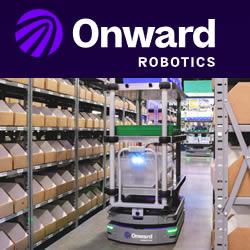Boston-Power Technology Powers NASA Robotic Initiatives
NASA to use Boston-Power's lithium-ion cells in both space as well as terrestrial development programs. Robonaut 2 battery pack expected to be delivered to the International Space Station (ISS) later this year by SpaceX.
Westborough, MA April 30, 2014
Boston-Power Inc., an industry leading developer and manufacturer of lithium-ion batteries and energy storage technologies, today announced that its Swing 5300 lithium-ion (Li-Ion) cell technology is being used by two NASA robotic programs: The Robonaut 2 (R2) program which expands the robotic capability currently being used on the International Space Station (ISS); and the R5 Valkyrie program which is developing a robot to respond to natural and manmade disasters as well as future space missions.
With a long-standing relationship since 2010, Boston-Power and NASA have worked cooperatively under the guise of a Space Act Agreement. During this time, Boston-Power cells have continued to meet NASA's performance needs while also passing their stringent safety and quality requirements.
Robonaut 2 is a human-like robot designed to work alongside astronauts as a robotic assistant. Boston-Power's cells help expand the capabilities of the original Robonaut, launched into space in 2011, by enabling un-tethered power and communication functionality. Future generations may serve a variety of remotely controlled functions from equipment maintenance and repair to staff medical care.
The R5 Valkyrie robot is initially focused on meeting the requirements of the DARPA Robotic Challenge (DRC); creation of a humanoid robot that can operate in an environment built for people, and use tools made for people, in the context of a simulated industrial disaster response. In the future, technologies such as R5 Valkyrie are expected to be the foundation for the type of robotic systems that will one day be used in the precursor missions to sending astronauts to Mars.
"At Boston-Power, we are proud to be serving the needs of NASA with our products and technology," said Boston-Power CTO Richard Chamberlain. "Working with the NASA development teams has been a beneficial two-way relationship over the past several years; NASA's reliability testing and quality processes have helped Boston-Power to gain a deeper understanding of the way our technology works and improve all of our product platforms."
The SpaceX launch that will carry the Robonaut 2 battery pack using Boston-Power cells to the International Space Station is expected to take place later this year. The development of the R5 Valkyrie robot continues with the goal of participating in the DRC Finals at the end of 2014.
About Boston-Power
Boston-Power is a developer and manufacturer of next-generation lithium-ion battery cells, blocks, modules, and systems. Designed to fuel a wide range of applications, its flagship offerings, Swing® and Sonata®, serve as the foundation for a new era of longer lasting, faster charging, safer and environmentally sustainable batteries. The company's Swing product delivers unmatched capabilities for Battery Electric and Plug-In Hybrid Electric Vehicles (BEV/PHEV), and utility energy storage applications. Sonata delivers industry leading performance to a wide range of portable power and industrial applications.
Boston-Power is a global company with R&D centers in Westborough, Massachusetts, USA, and Beijing, China, and mass manufacturing operations based in Asia. The company is funded by top-tier venture capital firms GSR Ventures, Foundation Asset Management and Oak Investment Partners. http://www.boston-power.com
Featured Product

Onward Robotics - Meet Lumabot®
An interactive and powerful autonomous mobile robot for order fulfillment. Lumabot AMRs boost picking productivity and their human counterparts, intelligently moving material to the right person at the right time
